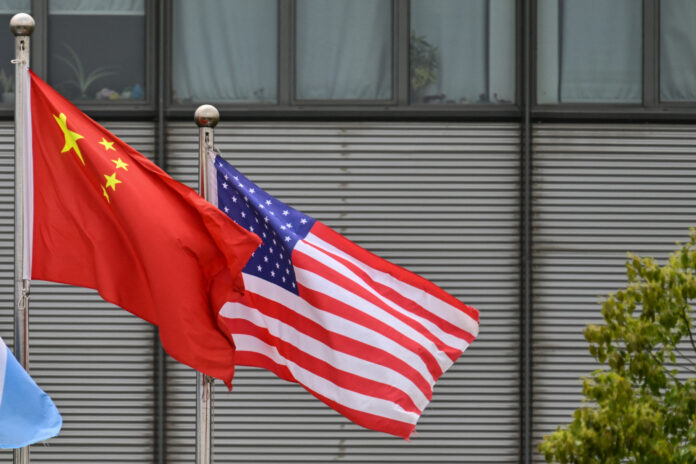A U.S. citizen has been prevented from leaving China for failing to disclose on his visa application that he worked for the U.S. government, The Washington Post reported.
The Chinese American man, who works for the U.S. Commerce Department’s Patent and Trademark Office, had been visiting family in China but was given an exit ban. U.S. authorities have not identified the man.
Guo Jiakun, a Chinese Foreign Ministry spokesperson, told a regular press briefing on Monday that he had no information to share on the matter, adding: “China is a country upholding the rule of law and we handle relevant cases in strict accordance with the law.”
The Commerce Department did not immediately respond to Newsweek‘s request for comment outside business hours.
Why It Matters
This is the latest case of a U.S. citizen blocked from leaving China for alleged legal reasons, which in the past have included involvement in business disputes. The practice has alarmed investors and drawn criticism from the U.S. and other governments.
The exact number of foreigners under exit bans in China is not known as some people remain unaware of a ban until they try to leave, with other cases going unreported. The U.S. State Department urges U.S. citizens to “exercise increased caution” when traveling to China due to “arbitrary enforcement of local laws, including in relation to exit bans.”
What to Know
The U.S. federal employee, who had served in the U.S. Army, has been prevented from leaving China “for months,” Hong Kong’s South China Morning Post reported.
He was initially held in the southwestern city Chengdu, capital of Sichuan province, in April and later traveled to Beijing, accompanied by a U.S. official, although his current whereabouts were not known, the newspaper said.
The State Department said on Sunday it had “nothing to share” on the case, while adding that its “highest priority is the safety and security of U.S. citizens,” the newspaper said.
Under Chinese law, foreigners can be barred from leaving China if they are involved in unsettled civil cases or under criminal investigation or trial. The Hong Kong newspaper said most reported bans are not imposed on people accused of crimes, but on those involved in civil litigation.
China does not recognize dual citizenship. This marks the first publicly known case of a U.S. government-affiliated person being targeted.
Separately last week, The Wall Street Journal reported that a Wells Fargo executive of Chinese descent had been banned from leaving China, and that the U.S. bank had suspended travel to China as a result.
Guo, the Chinese government spokesperson, said on Monday that Chenyue Mao, the Wells Fargo banker, was involved in a criminal case and had to cooperate with an investigation.
HECTOR RETAMAL/AFP via Getty Images
What People are Saying
A person familiar with the matter told The Washington Post: “No administration wants an American rolled up in China at the end of the day. […] The message was delivered at an extremely high level for the Chinese to let him go.”
John Moolenaar (R-Michigan), chairman of the House Select Committee on the Chinese Communist Party: “I am gravely concerned by what appears to be another case of CCP hostage diplomacy. This is a tactic, not a coincidence—and it’s unacceptable. The freedom of all Americans must remain a top priority and this is not the only American being unjustly detained by China.”
What Happens Next
The case of the Commerce Department employee comes as the world’s two biggest economies have been at odds over tariffs. President Donald Trump has given Beijing a deadline of August 12 to reach a trade deal.
China now faces a U.S. tariff rate of 55 percent, in addition to a 10 percent U.S. tariff on all imports. China has denounced what it calls U.S. bullying on tariffs and has threatened to respond with its own taxes on U.S. imports.
Despite the war of words over tariffs, Trump has spoken warmly of the Chinese leader Xi Jinping and the two are likely to meet this year, U.S. Secretary of State Marco Rubio said last week.
In Beijing, the spokesperson Guo said he had “no information to provide currently” on the possible meeting of the heads of state.
However, exit bans can remain in force for months or even longer while Chinese investigations drag on. The ban on the U.S. citizen could become a factor as the two countries look to a meeting between Trump and Xi.

